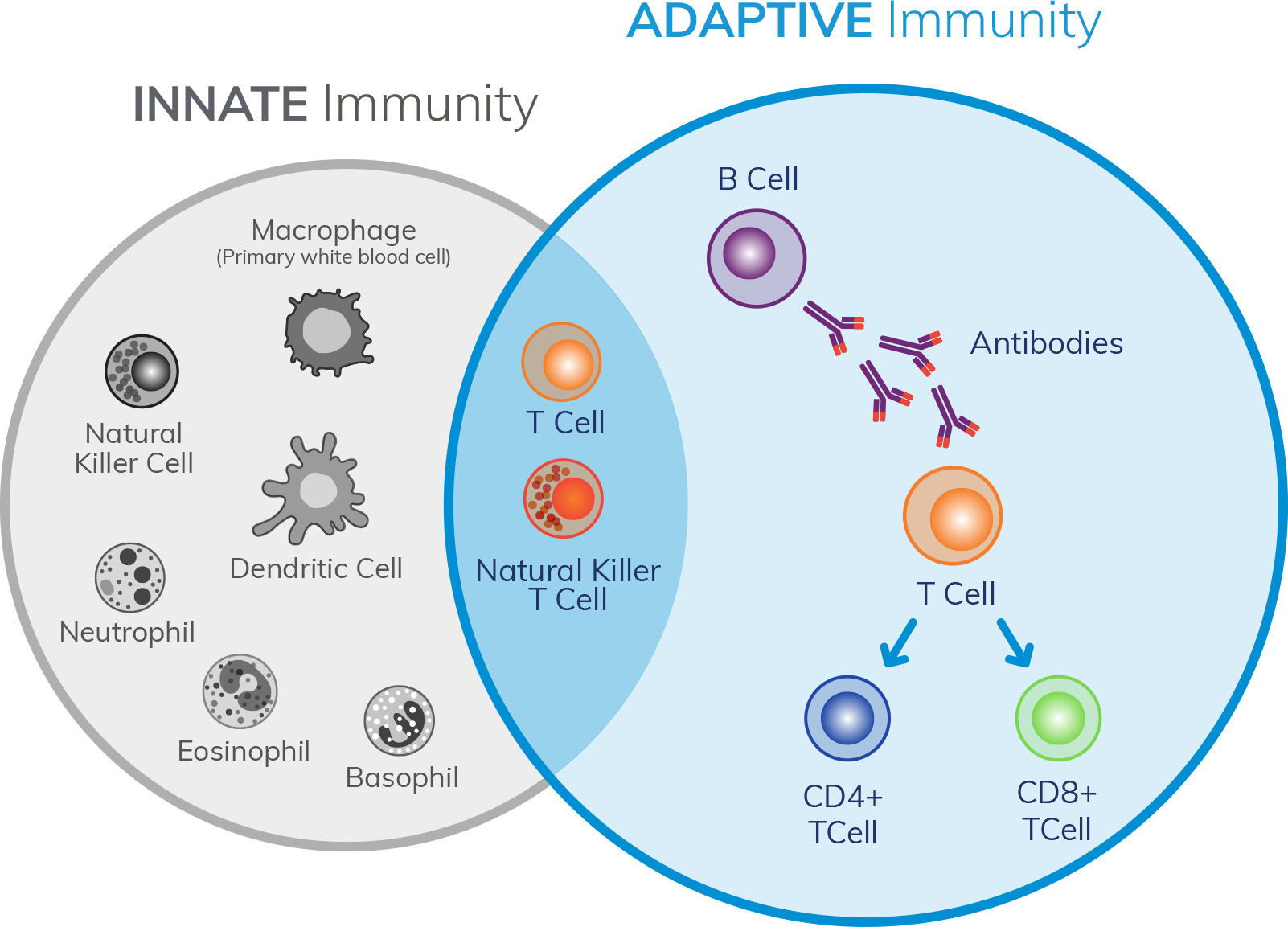What is
Immune Tolerance?
Focused on Delivering a Better Therapeutic Alternative
The immune system is designed to target foreign proteins (antigens), on the surfaces of viruses, bacteria, and other pathogens. When presented with an antigen, the immune system activates specialized cells to address the threat. Antigen-presenting cells (APCs) interact with T-cells to produce an inflammatory response that neutralizes the invading organisms.
A healthy immune system targets only foreign antigens, not the body’s own cells (self-antigens). The immune system’s recognition of self-antigens is called immune tolerance. When tolerance malfunctions, it can lead to a number of health problems, ranging from mild allergies to chronic and life-threatening autoimmune diseases.
The Toll of Autoimmune Disease
Nearly 50 million Americans suffer from autoimmune diseases, with the cost of treatment exceeding $100 billion annually. These diseases, which include type 1 diabetes, Crohn’s disease multiple sclerosis, and rheumatoid arthritis, can cause devastating health consequences. Depending on the disorder, autoimmune diseases may lead to severe joint pain and damage, digestive disease, long-term disability, and death.
Tolerance as Treatment
Immunosuppression is the standard of care for many autoimmune diseases. Immunosuppressive therapies work by drastically reducing the function of the immune system. While they can be effective, these treatments leave patients vulnerable to life-threatening infections, malignancies, and other serious complications.
Clearly, a more nuanced, targeted approach is needed. Ideally a treatment would harness tolerance in a targeted manner, while keeping the rest of the immune system intact.

How the
immune system
works
The immune system is comprised of a network of cells, tissues, and organs that interact to protect the body against viruses, bacteria, and other pathogens. When a foreign antigen enters the body:
- The first step is the signaling of antigen-presenting cells (APCs), which include B lymphocytes (B cells) to T lymphocytes (T cells)
- T cells can then attack and destroy the foreign organisms
- The antigen-specific antibodies produced by the B cells remain to facilitate clearance of the foreign antigen
- If you are infected with the same antigen again, the immune system will recognize and attack it, preventing illness
- This is known as adaptive immunity




